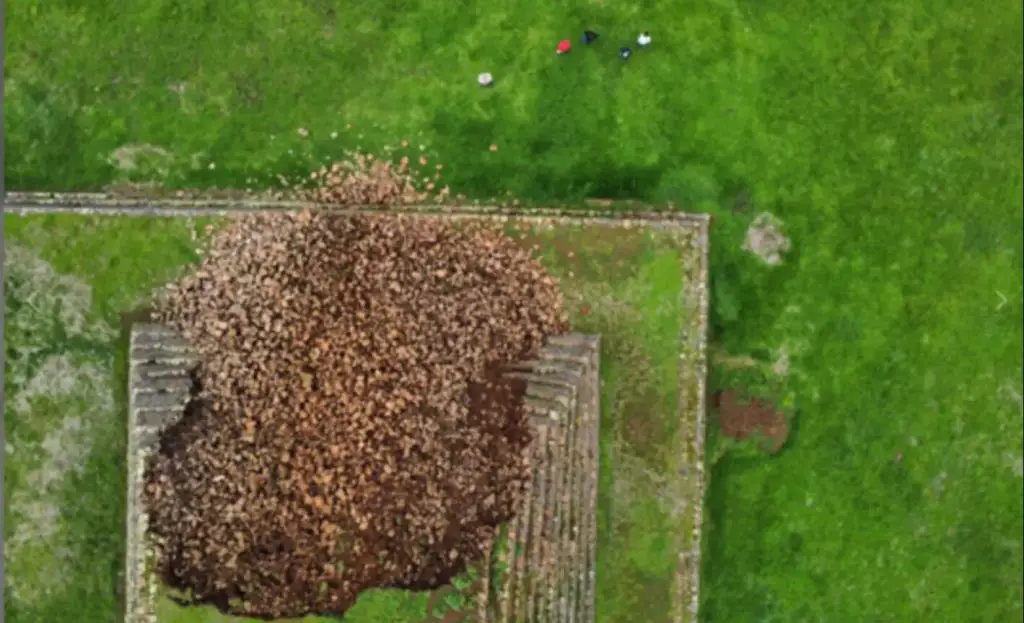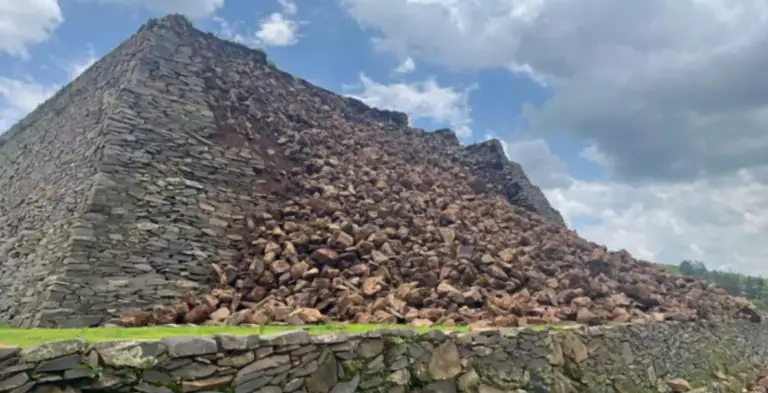An ancient pyramid in the Ihuatzio Archaeological Zone of Michoacán, Mexico, has collapsed after a period of severe weather, sparking concerns and superstitions among locals. The pyramid, which dates back to the Purépecha civilization around 900-1200 CE, was heavily damaged by torrential rains that followed a drought, causing the central part of the southern facade to give way. The National Institute of Anthropology and History (INAH) attributed the collapse to climate change, explaining that high temperatures had caused cracks in the structure, allowing water to seep in and weaken it further.
The Ihuatzio pyramids were significant cultural sites for the Purépecha people, used for sacred rituals and ceremonies. The recent damage to the pyramid has been a blow to the local community, which regards these structures as vital links to their ancestral heritage. Conservation teams have assessed the damage and are now working on plans to secure and restore the affected areas, though the collapse has underscored the ongoing threats that climate change poses to ancient sites worldwide.

The collapse of the pyramid has also ignited fears among some local residents, who view the event as a bad omen. One resident, Tariakuiri Alvarez, shared on social media that the incident reminded him of similar occurrences before the Spanish conquest, which were seen as signs of the gods’ displeasure. This belief has led to widespread speculation about whether the collapse could foreshadow a significant event or disaster in the near future.
As restoration efforts continue, the incident serves as a stark reminder of the vulnerability of ancient structures to modern environmental challenges. The combination of climate change and the need for improved preservation techniques highlights the urgency of protecting these irreplaceable cultural treasures for future generations.




